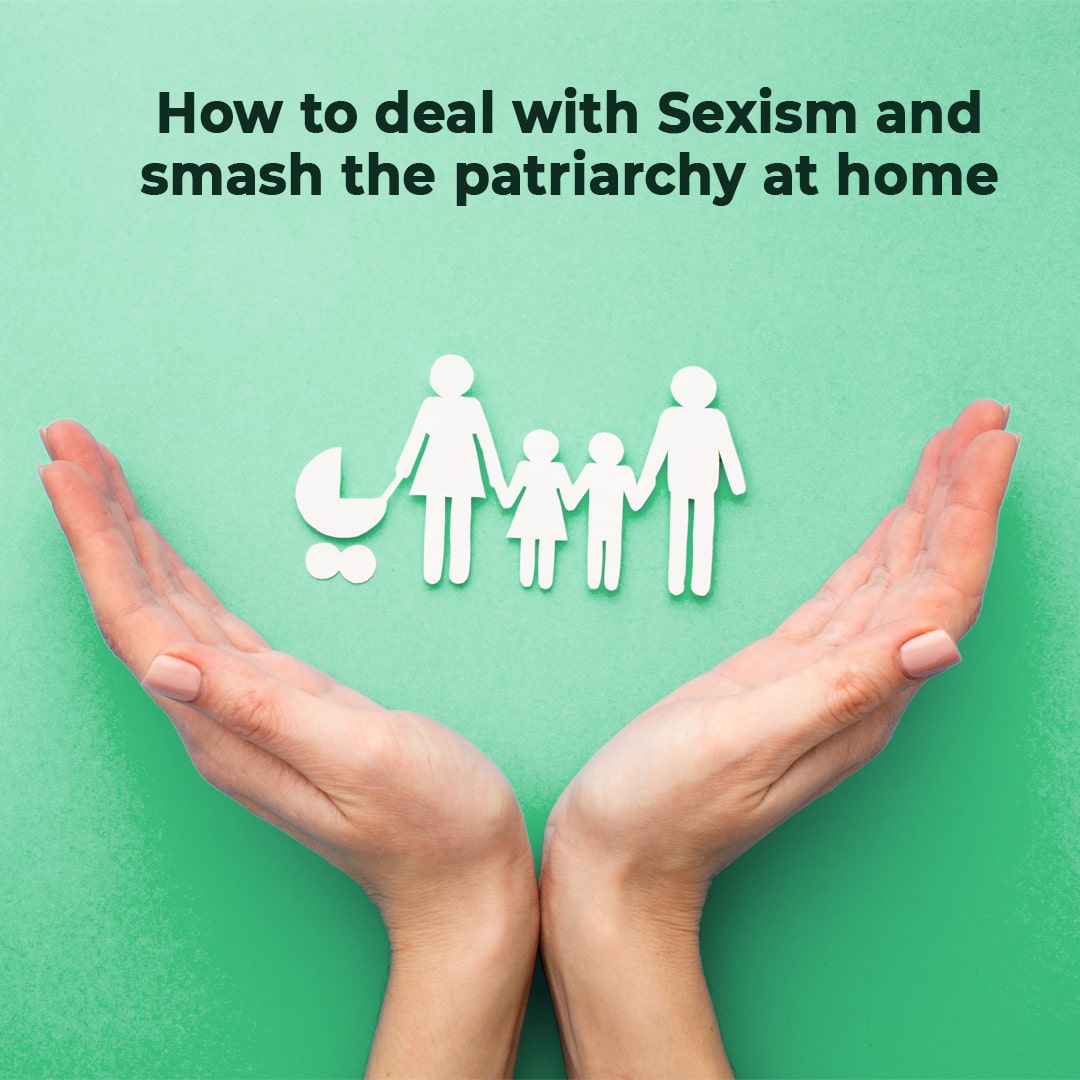CATEGORIES
#Breaking Stereotypes #She Speaks #Women EmpowermentOverview
- Sexism refers to “prejudice or discrimination based on sex” and “behavior, conditions, or attitudes that foster stereotypes of social roles based on sex.”
- Despite the feminist movement, people still have attitudes and behaviors that show a belief of the male gender being superior due to an underlying bias of our patriarchal society.
- Most people are unaware that their behavior reflects internalized sexism and misogyny.
- If politeness means justifying gender-based violence as “disciplining” a “mouthy” woman, then, by all means, be rude—loudly.
- Saying “no” and refusing to do things that represent internalized sexism is one of the most practical and proactive ways to confront the patriarchy.
- Everyone deserves to live in a home where they are respected, valued for who they are as individuals, and treated equally, irrespective of their gender identity or expression.
Patriarchal Prejudice
Casual dinner conversations in my family have been known to take unexpected turns. In one such conversation, I commented on how I would never stay with a man who hit me, even if it happens only once. “Even if you’re wrong?” an older male relative asked, genuinely shocked. “Am I a child?” I retorted. The rest of the family tried to hide their dissent—some from my relative’s chauvinism and others from my “rudeness”. Now, would I describe my family as patriarchal? Not quite. But are there sexist attitudes and behavior? Most definitely. Allow me to explain.
Merriam Webster comprehensively defines patriarchy as a “social organization marked by the supremacy of the father in the clan or family, the legal dependence of wives and children, and the reckoning of descent and inheritance in the male line.” Distinct but closely related, sexism refers to “prejudice or discrimination based on sex” and “behavior, conditions, or attitudes that foster stereotypes of social roles based on sex.”
In my family, women rule the day—in every sense of the phrase. But these same women still reprimand others who step outside of the parameters they deem acceptable for women and girls. This should not come as a surprise because sexism in modern society is rooted in—and maintained by—patriarchy.
Today, despite the feminist movement, people still have attitudes and behaviors that show a belief of the male gender being superior, and an assumption that men are more competent than women due to an underlying bias of our patriarchal society.

4 Ways to Deal With Sexism At Home
Regrettably, conversations about patriarchy and sexism are usually kept outside the home and only reserved for the workplace, politics, and learning institutions. Sexism at home often goes unchecked because, most of the time, it manifests in subtle ways. However, this does not mean you should stay silent and give in to an unjust system. Take it upon yourself to institute change by educating others and empowering other women in your family and community at large. Here are 4 ways in which you can deal with sexism and, slowly but steadily, smash the patriarchy in your home.
1. Inform and Educate
The first and perhaps most important step to dismantling patriarchy is smashing all the things that, consciously or unconsciously, make us comfortable parties to gender oppression. Most people are unaware that their behavior reflects internalized sexism and misogyny. Start by educating yourself, and then share that knowledge with others in your family.
Watching feminist movies and films—while avoiding the sexist ones—as a family is also a fun and great way to educate your family members, and help them shift their perspectives about gender. The process is about learning, unlearning, and relearning; but you should understand that a person’s way of thinking is as a result of their upbringing, and changing certain ideologies might take time. While years of societal conditioning cannot be undone with a single speech, starting the conversation is a huge and crucial first step.
2. Encourage Equal Sharing of Responsibility and Property
Traditional gender roles do not have room in today’s society. But even as women work and hold leadership positions, both in their personal and professional lives, society still perceives female leaders as unicorns—exceptions to a collectively held view of a woman’s “role”. To promote equality at home, encourage equal participation of all genders in housework and decision making, as well as the sharing of financial responsibility and family property. Shatter the societal beliefs that limit women’s roles to domestic work while placing sole financial responsibility on men. Cooking, cleaning, and financial management are basic skills that everyone should be taught from a young age.

3. Call Out Instances of Sexism
Even if you won’t have to sit through awkward dinner conversations, smashing the patriarchy at home will sometimes involve calling people out when they express sexist comments and behavior. Sometimes, the misogyny could be coming from your parents or older relatives, in which case confrontation may be daunting. The plan is not to get into a verbal fight with your loved ones, but to politely and assertively let them know that something they said or did is downright sexist. However, if politeness means justifying gender-based violence as “disciplining” a “mouthy” woman, then, by all means, be rude—loudly.
4. Learn to Say No
In most cases, dismantling the patriarchy involves going against culture, tradition, and religion, as well as retelling the stories that we have been told since childhood from a feminist perspective. Saying “no” and refusing to do things that represent internalized sexism is one of the most practical and proactive ways to confront the patriarchy. While talking about it and correcting others are important in encouraging feminism, action will be received in a way that theoretical arguments will not. So you’re a girl who does not like wearing skirts—wear pants and sit as you please even if others call it “unladylike”.
When one person speaks up, it gives hope and inspires others to follow suit. Taking such steps has a positive effect on other people around us, especially the younger generation, who will then perceive equality as a normal way of life thus breaking the toxic cycle of gender oppression and stereotypes.

The Patriarchy Hurts Everyone
Masculinity and femininity simply represent traits like strong, independent, emotional, and nurturing. Although conventionally associated with gender, the two words are not synonymous with gender. Males, females, and non-binary individuals possess both masculine and feminine traits. Everyone deserves to live in a home where they are respected, valued for who they are as individuals, and treated equally, irrespective of their gender identity or expression.
Smashing the patriarchy should not be left to women alone because, albeit differently, the gender hierarchy affects everyone negatively. Even though the patriarchy bestows some benefits on straight, cis-men, it still harms them as well. By overvaluing and associating masculinity to men, the system disconnects men from their humanity and emotions, forcing them to perceive any form of vulnerability as weakness. Statements like “Take it like a man”, “Real men don’t cry”, or “Soft like a girl” are also aspects of normalized sexism that potentially harm men’s health and well-being.
Therefore, feminism is not a fight against men, but a war against sexism. In her book, Feminism is for Everybody, Bell Hook’s definition of feminism indicates that “all sexist thinking and action is the problem, whether those who perpetuate it are female or male, child or adult”. In other words: “Up with women” is a rally for equality that does not mean “Down with men”.
Conclusion
As stated before, feminism is not a fight against men, but a war against sexism. We as humans deserve equal rights. Women do not deserve to be treated as objects but as humans and we cannot stop fighting until that happens, and we get the equality that we deserve. Traditional gender roles do not have room in today’s society.


